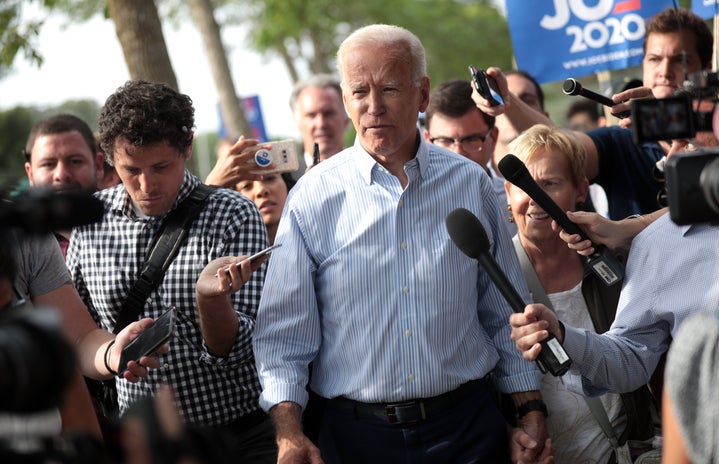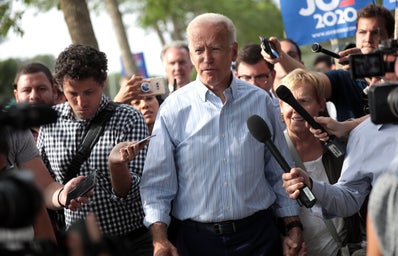On March 13th of this year, President Joe Biden approved ConocoPhillips’ controversial project in Alaska called Willow Project. After months of debating and an uprising of online activists protesting against it, the Biden administration confirmed their approval. Here are some things to know about the project:
who started the Willow Project?
ConocoPhillips is a global energy company that has already been exploiting oil for years in Alaska; being the only one that currently has oil drilling operations in Alaska’s National Petroleum Reserve. Even with the operating projects all around the globe, none of them are smaller than Willow would be.
First approved by the Trump administration in 2020, the Willow Project was reduced to three drill pads by Biden (initially it was five). Still, the company will be able to drill about 90% of the oil they are pursuing. State’s lawmakers are supporting the project, stating it will create jobs, boost domestic energy production and lessen the country’s reliance on foreign oil.
What is the Willow Project?
The Willow Project is a decades long massive oil drilling venture in Alaska. Located in the North Slope region, the project aims to extract 180 thousand barrels of petroleum per day, being the biggest drill project in the region.
In 2020, during the presidential campaign, Biden promised to end new oil and gas drilling on public lands and waters; which he carried out as part of an early executive order. However, in 2021 this drilling pause was struck down by a federal judge. Since then, the Biden administration has opened up several areas for new drilling, which were questioned in court by environmental groups.
The U.S. Group of Earth Observation has estimated that the extraction will lead to the generation of 9.2 million tonnes of CO2e (a planet-warming carbon) per year. That would be equivalent to adding 2 million gas-powered cars to North American roads. Because of this, a lot of activists started to protest for the veto of the project. The hashtag “#StopWillowProject” emerged on TikTok and resulted in over one million letters sent to the Biden administration against the project and over 2.8 million signatures on a Change.org petition to halt Willow.
What are the reasons behind it?
According to Ryan Lance, CEO of ConocoPhillips: “This was the right decision for Alaska and our nation”. The company affirms that this project will lead to thousands of jobs and will create local investments. Not only that, but the U.S. government will be able to produce enough energy for their country and will no longer need gas from countries like Saudi Arabia or Venezuela.
A coalition of Alaska Native groups also supports the project. They say it could be a needed source of revenue for their region and fund education and healthcare for them. Nagruk Harcharek, president of the advocacy group Voice of the Arctic Iñupiat said that Willow presents an opportunity to continue that investment in the communities, “Without that money and revenue stream, we’re reliant on the state and the feds”.
Not only that, but since Conoco already has existing and valid leases in the area, Biden’s administration had its hands tied with the project. It was determined that legally, courts wouldn’t allow them to fully reject the Willow Project, according to CNN sources. If they would have drastically reduced the project or rejected it, they could have faced steep fines in addition to legal action from the company.
Who opposes the project?
Although there are some Alaska Native groups that support the project, the ones that live closer to the planned location – for example, the members of the Native village of Nuiqsut – are concerned about the environmental impacts of a major oil development. The Nuiqsut Mayor, Rosemary Ahtuangaruak, and tribal officials send a personal letter to the Interior Secretary, Deb Haaland. “Other villages get some financial benefits from oil and gas activity but experience far fewer impacts than Nuiqsut” the letter reads, “We are at ground zero for the industrialization of the Arctic”.
Climate activists are deeply concerned by the impacts that Willow will cause to global warming. Earthjustice, an environmental law group, is expected to file a complaint against the project soon and will try to block the project from going forward. Millions of people signed petitions against the project and there were even protests in front of the White House.
Greenpeace USA described the project as “betrayal” and a “climate catastrophe”, referring to the major breach of Biden’s campaign that promised to take swift action to tackle the climate crisis. “The Arctic is already warming faster than anywhere else on the planet, and the Willow Project would be a carbon bomb.” said Wendy Wendland, president of policy group Environmental America.
There is great concern given to the temperatures that are rising through the years. In arctic climates, such as Alaska, rising temperatures are defrosting permafrost (soil that spends the whole year frozen and contains approximately 1.7 trillion tonnes of carbon). Since over 80% of Alaska’s surface is built on permafrost, this is a major problem. The thawing of this area puts at risk the decision of the Paris Agreement (2015) to keep global warming lower than +1,5°C compared to the preindustrial era.
As a way to calm activists, the Biden administration said that they are working on additional protections to a large area of the natural reservation to prohibit the extraction of oil closer to the Arctic Ocean. But there is still a lot of debate on the subject and environmental groups feel as if they were in a race against the clock with ConocoPhillips.
__________
The article above was edited by Clara Rocha.
Liked this type of content? Check Her Campus at Casper Libero‘s home page for more!


